- Home
- Norman Mailer
The Deer Park Page 4
The Deer Park Read online
Page 4
A long description, I know, but I had seldom liked anybody so much. I felt that he was a man like me, only many times smoother and he knew more. Later I learned that a lot of people saw Eitel this way. Of all the rumors about him, and most people seemed to enjoy saying that his career was finished, I believed nothing. He drank a lot, but I never saw him drunk; his speech only became slow; that he took drugs was a little strong for me, and his reputation with women I would have been ready to share. More than once I studied the friendly attention he was able to give them.
All the same, he was forced to be a lonely man, and a good part of our friendship was due to the fact that I looked for his company. At least, I thought so. It was his habit to drive over to the open-air café in the early afternoon, and there, as I have said, he would drink, he would talk, he would look at his script. Once, he had been a great friend of the manager of the hotel, but now he was waiting for the day when he would be asked not to enter the Yacht Club. “You see, years ago I loaned the manager some money, and he’s the sort of man who boasts that he never forgets a favor.” Eitel grinned. “Right now, I find that a nice trait of character. For some silly reason, I like this place.”
Many days, nobody besides myself would sit down at all, and I would help him drink through the afternoon and into the night. It seemed he was never invited anywhere, or at least anywhere he wanted to go. Usually, Eitel would get restless after a time and I would go along with him on a round of the second-rate night clubs and bars of the resort. All those hours were the same. Drinking friends would be found and lost, a girl might be picked up and dropped again, once he almost got into a fight because a drunk insulted a bar girl who was sitting with us, and yet it was a kind of occupation. On we would go, hiding from our insomnia, not even trying to sleep until the dawn lifted over the desert, and along the rounds of our drinking he drove himself like a man getting over a broken marriage. I could see him waste a day and then a night and do no more than answer a letter.
I was told his story more than once, hearing it from former friends, false friends, and people who did not know him at all, but most of his story I got from Eitel directly, for one of his qualities was the ability to talk about himself with considerable masculinity of mind. He was the only son of an auto dealer in a big Eastern city, and his father was born of Austrian immigrant parents and started as a junk dealer. His mother was French. Eitel was the first of his family to go to college. It had been expected he would be a lawyer, but while he was at school he got interested in the theater and quarreled with his parents about his career. By the time he graduated, the argument was settled; his father had lost his money in the Depression. Eitel drifted around New York looking for work. He was not a good-looking young college graduate, and he was shy, and so he fell in love with the first girl who fell in love with him. She was studying to be a welfare worker, and she lived at home, and wanted to marry him to get out of her parents’ house. It was natural they should feel they were very much in love. She was political, his wife, and through her, through her friends, he studied radical literature, he talked politics. His wife worked in a bookstore to support him, and he wrote plays, he acted where he could, he got opportunities to direct plays in small theaters, and in the worst of the Depression his own career grew. He was hired to put on a play in a government-sponsored project, and it was a success. A lot of people heard his name for the first time. He was a playwright, a director, an actor; he was offered a career in the movies. So he had gone to the capital, and on a small contract to make cheap pictures, he had the good luck to be allowed an experiment. It was a cheap experiment, no more, and yet he wrote and directed one, then two, and finally three pictures which are considered powerful even today. I saw one of them reissued the year I got out of the orphanage, and although I suppose it was dated, I don’t remember a better picture made about the Depression.
Eitel always remembered those pictures as the best eighteen months of his life. He had been an aggressive young man at the time, he told me, opinionated, dogmatic, and more than a little sure of himself, liking everybody a great deal on the flush of his success, but understanding them poorly. He was young, and there were people who told him he was a genius. Of course, it was not so simple. Those three pictures for all their history of being seen by college film societies and museums and cinema clubs, for their reputation to this day, even for their influence on the many directors who imitated his style, were still pictures which did not make money. Although he was given a better contract by another studio with larger budgets and bigger stars, the stories were no longer his own. He continued to make pictures which were better than most; they even showed a profit. Yet he was becoming dissatisfied. It was the period of the Spanish Civil War, and what he could not put into his work, he tried to find in the work there was to be done on committees. He was still full of enthusiasm, he argued about Spain, he spoke at public meetings, he helped to gather contributions, and all the while he was losing his first wife. She was unhappy, and she hated the capital. She felt he did not want her any longer, and it was true; he did not; he wanted a woman who was more attractive, more intelligent, more his equal; he wanted more than one woman. He saw so many in the capital that he could have, and it made him anxious to be free.
However, he felt guilty about his wife. He had needed her at one time and they had been good friends, she had taught him so much, and it was not her fault that now he knew more. He would think at times that his work was spoiled not only by the studio, but by himself. That was the trouble with their marriage, he would tell himself; he was too comfortable and too bored, his talent was not growing. So he decided to go to Spain.
He got to the front lines as a visitor. The year he spent there was wasted, and it was impossible to begin the movie he wanted to make. “The war which put a finish to five hundred years,” he was fond of saying and he and his wife went back to their marriage. He had his affairs, she had her affairs; they told each other about them, for they swore they must be honest with one another. Yet they quarreled. He had been offered a big salary at Supreme Pictures, and he said that he should take it, she said that he should not; he was full of the premise that to make the movies he wanted, he had to be powerful in a studio. He made two bad pictures and one of them made a lot of money, and then his wife wanted a divorce, she had found somebody else. He had dreamed for years of such a solution, yet to his surprise, he could not let her go; they had one of those final reconciliations, and a half year later they divorced. Eventually she moved to another city and married a labor organizer and Eitel never saw her again. By now he could hardly remember her.
Next he married an actress from the social register. While it lasted, he made movies, many movies, he bought a fourteen-room house with a library, a wine closet, a gymnasium, a swimming pool. There was a four-car garage, a volleyball court, a badminton court, and a tennis court; vines grew on the terraces and a row of cypresses leaned toward the ocean, there was a kennel for a dozen dogs, a stable for two horses. That was his second marriage and he kept the house long after the wife. From the wife he had picked up what he wanted, and paid for it of course.
His second divorce coincided with his commission into the Army. In Europe, he made training films and combat films and traveled the cocktail circuit of generals and beauties and black marketeers, of politicians and movie producers and statesmen. He even made the last of his good films, a documentary on parachute troops so different from all the battles one saw on the screen that the Army never released it.
When Eitel came back from the war, he took on the last of his reputations. There was a year or two when he was supposed to have slept with half the good-looking women in the capital, and it was a rare week which did not have his name in one gossip column or another. His films made money and he was the highest-paid director at the studio, for he had the reputation of being able to get relatively superlative performances from relatively untalented actresses. But his style had changed. In the face of all the pictures he was not encouraged
to make, he came to choose movies of intricate action and odd character until it became at last a trade-mark, and “the Eitel touch” would guarantee a string of exotic murders. “Audiences are made of sentimental necrophiles,” he said to me once.
Yet of all the time which passed in making money and spending it, in directing films which were a compromise—actors, story, and plot furnished by Supreme Pictures; atmosphere and master’s touch by Charles Francis Eitel—it was his last year in the capital which concerned Eitel the most. Over and over he would return to it in conversation.
The last year began with his third divorce. He always married out of pity, Eitel said to me, and he had come to distrust pity. It was the sure sign of vanity. “I’m the archetype of the John who marries five or six times because he just can’t believe the poor girl will live without him.” The third wife had been beautiful, she was Lulu Meyers. “You’ll meet her sooner or later,” Eitel told me. “She comes down here between pictures.” Lulu was very young, Eitel went on, he had really believed she needed him. “It’s subtle when a marriage ends. You always go hog-wild. And to make matters worse, I was on vacation at the time. I don’t know why, I got into the most dreary affair with a Rumanian actress. She had had one of those horrible lives you can’t even bear to think about. Her first husband, the young love, was killed in a street accident, her second husband stole her money. It was grim. Apparently she was well known in Rumania, and when the war came she was put in a concentration camp, although for all I know she could just as well have been a collaborateur. In any case, she came here with nothing but an atrocious Rumanian accent. It doesn’t matter what kind of star you were in Rumania, there aren’t many roles you can play when you’re over forty, your looks are going and you have an accent with all the wrong sounds in it. She made some sort of living being technical advisor for films with a Balkan locale.”
We were sitting on the patio which opened from the living room of Eitel’s house, and he stopped abruptly and made a face at the yucca tree turning blue in the twilight shadows. “Sergius O’Shaugnessy,” he said with the comic pompousness he loved to give my name, “what are you doing here in Desert D’Or? Just what the hell are you doing, you smart Mick?”
“Nothing,” I said, “I’m trying to forget how to fly a plane.”
“Do you have money to do this forever?”
“For a year or so.”
“Then what?”
“I’ll think about the next town when my money is gone.”
“That kind of remark makes me feel old-fashioned. You’re really here to have a good time?” Eitel asked suspiciously. I nodded. “Women?” he went on.
“If I can manage it.”
“Sergius, you’re a twentieth-century gentleman,” he said, and we laughed at this.
“The worst thing about my Rumanian,” Eitel continued, as if to explain himself now that he had an idea of me, “is that she had been beautiful once, and too many men had been in love with her. Now, I’m afraid, it was the reverse. She had lost her looks and so she adored me.” He couldn’t stand her, Eitel explained, and therefore he felt obliged to be as nice as possible. “An affair like that can go on forever. It went on for a whole year. I’ve never been the kind of man who can be faithful with any regularity. I’ve always been the sort of decent chappie who hops from one woman to another in the run of an evening because that’s the only prescription which allows me to be fond of both the ladies, but I was faithful in my way to the Rumanian. She would have liked to see me every night for she hated to be alone, and I would have liked never to see her again, and so we settled for two nights a week. It didn’t matter if I were in the middle of a romance or between girls, whether I had a date that night or not—on Tuesday night and Thursday night I went to her apartment to sleep. I can say, parenthetically, that she was passionate in a depressing way.”
“How can passion be depressing?” I asked.
Eitel was kind about it. “You’re right, Sergius. It wasn’t really passion, and that’s why it left me low. She was hungry, that’s all.” He started to pour himself a drink, and instead rattled the ice cubes in his glass. “As I say, I believed I went to see her because I didn’t want to hurt her. But, looking back, I can say I was wrong. I needed to see her.”
“I don’t know if I follow you.”
He shook his head. “Maybe I was in bad shape after Lulu moved out.”
“Some of the people here think you’re still in love with her,” I said directly. I guess I believed this myself. I had seen Lulu Meyers not more than a year ago, but I had seen her when she passed for a minute through our officers’ mess escorted by generals and colonels, and I had seen her again with ten thousand soldiers between us while she told her jokes and prattled a little song on an improvised overseas stage like some fairy princess of sex who had flown across the Pacific to anoint us with tiny favors, a whiff of her perfume, a lift she lost from her heel, a sequin from her evening gown. I even remembered having heard the name of her husband, and having forgotten it, and so the situation seemed impressive to be able to talk casually of her now.
“In love with Lulu?” Eitel asked. He began to laugh. “Why, Sergius, our marriage was the meeting of zero and zero.” He poured his drink and took a sip before putting it down. “When Lulu and I got married, I knew it could never last. That was what bothered me afterward. You begin to think you’re a sleepwalker when you can’t believe in your marriage on your wedding day. That’s why I needed the Rumanian. My work was going to hell.”
It had come on him, after fifteen years and twenty-eight pictures, that he would never be powerful enough to make only those pictures he wanted to do. Instead, he would always be making the studio’s pictures. He was not even surprised to decide that he had no real desire to make his own films. For better or worse, his true marriage was with the capital, and he knew nowhere else to go. Worse. The commercial reputation at which he had sneered was being lost. His last picture, Love Is But a Moment, had been an expensive failure, but the two which came before it had not been successful either. “And then,” Eitel said, “there was that Subversive Committee.” It had hung over him for months. There were so many petitions he had signed, so many causes to which he had given money, first from conviction, then from guilt, finally as a gesture. It was part of the past; he was indifferent to politics; yet he learned that in the next subversive hearings in the film industry he would be called, and if he were not ready to give the name of everybody he knew who had ever belonged to any of the parties and committees on the government’s proscribed list, he could never work again in the capital.
He felt nothing for all those people he once had known; some he liked in memory, some he disliked, but it seemed ridiculous to end his career by defending their names with his silence and so indirectly defending a political system which reminded him of nothing so much as the studio for which he worked. Yet there remained his pride. One did not go crawling in public.
“It was horrible,” Eitel said. “I couldn’t make up my mind.” He smiled at the memory as if relieved it were gone. “You can have no idea of the work I put in. I had no time to ponder the moral questions, I was too busy having conferences with my lawyer, my agent was taking soundings at the studio, my business manager was lost in sessions with accountants to review my income-tax returns. They analyzed the situation, they refined it, they analyzed it again. My expenses were high, they told me, my salary was a necessity, my capital had been drained in divorce settlements, and Supreme Pictures was not going to protect me from the Committee. What with my big salary, my agent was even convinced they had encouraged the Committee to start on me. It seemed that when one got down to it, I had very little real money. So, they all advised the same thing. Co-operate with the Committee.” Eitel shrugged. “I said I would. I was sick about it, but there it was. My lawyer and I started to spend hours going over what I would say. In the middle of it all I started changing my mind again. When I got down to the details it was just too unpleasant. I got the
lawyer to draw up a different plan in case I would not co-operate. And all the while friends kept seeing me and giving advice. Some said I should talk, others told me to be an unfriendly witness, others came just to admit that they didn’t know what they would do. I was finding it hard to sleep. What nobody took into account was the picture I was making. The studio had assigned me to film a musical, Clouds Ahoy. I couldn’t have asked for anything worse. I hate musical comedies.”
Everything about the picture was wrong. His producer interfered on the set, there were visits by high studio executives who did not say a word. Delays came up which could have been avoided and others which could not; the star got sick, the color film showed mistakes in lighting, Eitel had a fight with the cameraman, a grip was hurt, it was decided that changes had to be made in the script, the schedule fell days behind, and an expensive scene with extras, calculated to take a morning, went into the morning of the next day; everything was lax, and Eitel knew he was to blame. Each night for salt to his sores, he had to sit in a projection room and watch the rushes from the last week. The more he worked, the worse it got. The pace was too slow or too rapid, the comedy was not funny, the sentiment was pious, and the production numbers with their troops of dancing girls and their kaleidoscope of scenery looked like a battlefield after the war between the dance director and Eitel. Lost in the middle was “the Eitel touch”; here and there a scene with studied composition, intricate shadows, and a patch of atmosphere. It went on like this for three weeks of shooting, until one morning, with the picture not half done, everything went wrong, and everybody, producer, director, actors, cameramen, and grips, dance director and chorus, milled over the sound stage. Eitel, his nerves out of control, walked off the set and left the studio. Immediately, his contract was revoked by Supreme Pictures, and the next morning another director was given the thankless mission of finishing Clouds Ahoy. Eitel wasn’t there to learn the news. When he quit the studio that morning, he was beginning to act a script of his own which, whether behind or ahead of schedule, took several days to unwind.

 Ancient Evenings
Ancient Evenings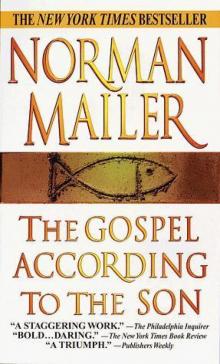 The Gospel According to the Son
The Gospel According to the Son Oswald's Tale: An American Mystery
Oswald's Tale: An American Mystery The Castle in the Forest
The Castle in the Forest The Executioner's Song
The Executioner's Song Why Are We in Vietnam?
Why Are We in Vietnam? The Deer Park: A Play
The Deer Park: A Play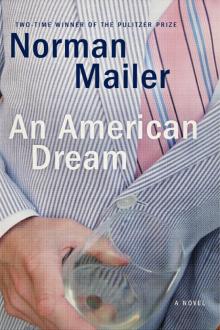 An American Dream
An American Dream Why Are We at War?
Why Are We at War?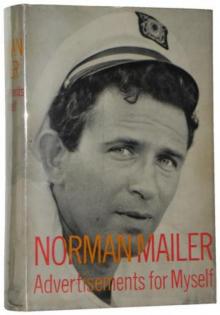 The Time of Her Time
The Time of Her Time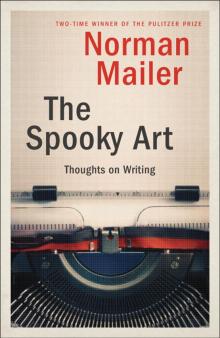 The Spooky Art: Thoughts on Writing
The Spooky Art: Thoughts on Writing Miami and the Siege of Chicago
Miami and the Siege of Chicago Mind of an Outlaw: Selected Essays
Mind of an Outlaw: Selected Essays Barbary Shore
Barbary Shore The Fight
The Fight Harlot's Ghost
Harlot's Ghost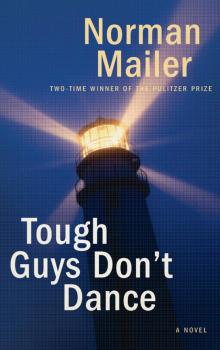 Tough Guys Don't Dance
Tough Guys Don't Dance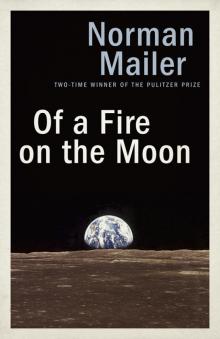 Of a Fire on the Moon
Of a Fire on the Moon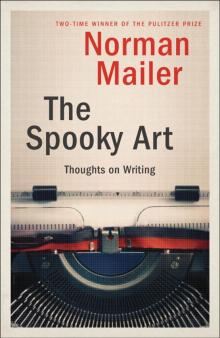 The Spooky Art
The Spooky Art The Deer Park
The Deer Park On God: An Uncommon Conversation
On God: An Uncommon Conversation Mind of an Outlaw
Mind of an Outlaw Oswald's Tale
Oswald's Tale